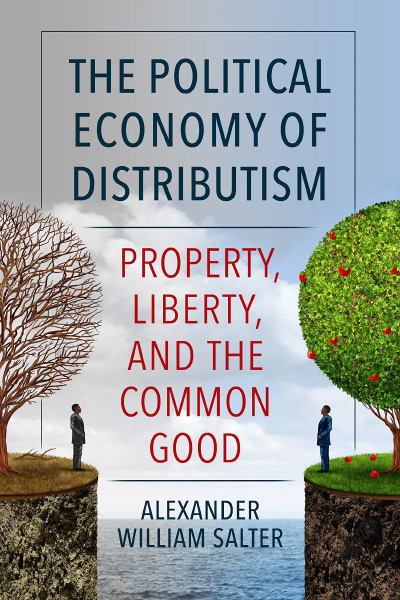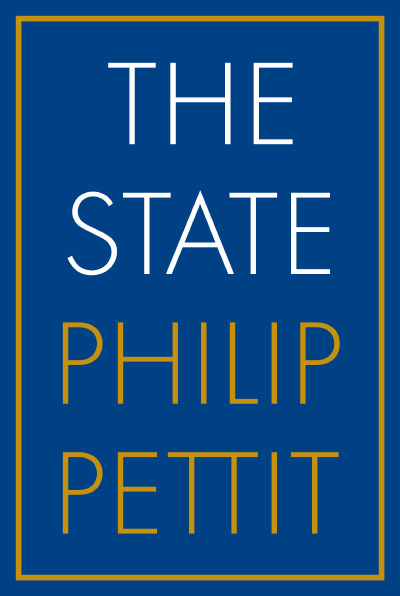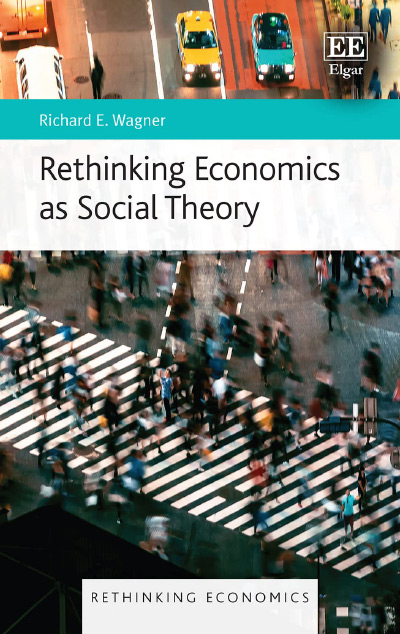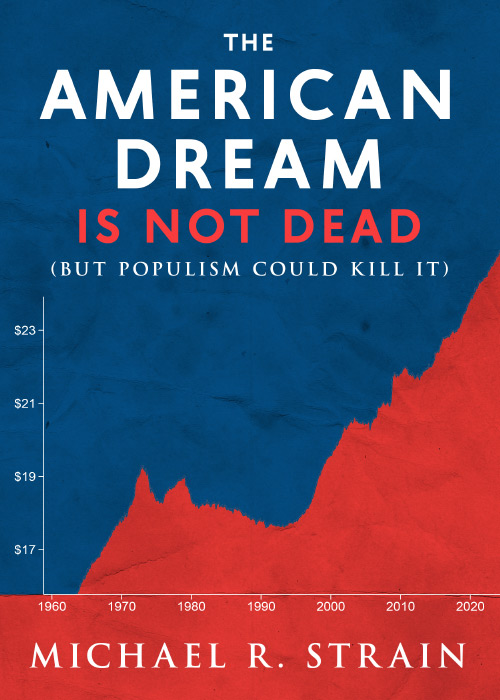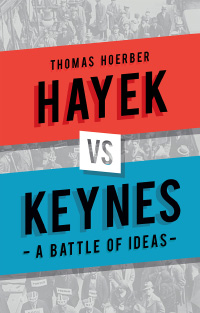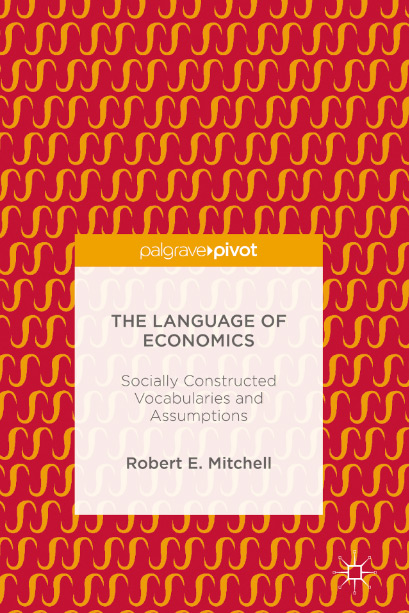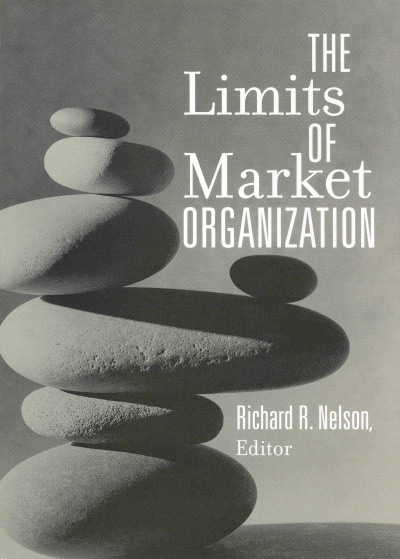Early hominids may have allocated resources before humans had the concepts “allocation” and “resources” or knew they did. Either way, the perennial debate over the best way to allocate resources continues in full stride today, with capitalist and socialist factions variously bolstered and blighted by our now-expansive conceptual repertoire. The debate often assumes, however, that these systems are mutually exclusive and exhaustive. Must we choose?
In The Political Economy of Distributism: Property, Liberty, and the Common Good, Alexander William Salter points us not to “stale third-way thinking” (p. 8) about a mere mash-up of laissez-faire capitalism and socialism but to a genuine alternative to the two-system dichotomy. Distributists (or “distributivists”) argue for widespread ownership of productive resources, rejecting both capitalism and socialism insofar as these depend on concentrated ownership. Distributists typically claim, with G. K. Chesterton (1926/2024, The Outline of Sanity, in Three Works on Distributism, unnamed publisher, Monee, Ill., p. 203), that “the big shop is a bad shop.” Chesterton argues that the market power of monopolists lets them outcompete smaller shops, but that this sets our interests back eventually, since big shops ultimately make goods that are not more but less valuable. Salter carefully probes this and many other considerations. The Political Economy of Distributism is a thoughtfully crafted book that will be a valuable resource for teachers and researchers in the fields of business, economics, ethics, philosophy, theology, and Catholic social thought. Salter develops a strong argument for the idea that political freedom requires economic independence and strength.
Salter takes readers on a fascinating historical tour of the rise of distributism. He demonstrates both the ills of diverse versions of capitalism and socialism and many of the large pluses of market economics and classical liberal approaches to political-economic institutions. The book carries us through Hilaire Belloc’s An Essay on the Restoration of Property (1936/2009, Norfolk, Va.: IHS Press) and The Servile State (1977, Indianapolis, Ind.: Liberty Fund), Chesterton’s What’s Wrong with the World (1910/2007, New York: Dover Publications) and The Outline of Sanity (1908, New York: John Lane), Wilhelm Röpke’s The Social Crisis of Our Time (1942/ 1992, Rutgers, N.J.: Transaction Publishers), A Humane Economy (1960/1998, Wilmington, Del.: ISI Books), and The Economics of the Free Society (1961/1963, transl. Patrick M. Boardman, Chicago: Henry Regnery), and notable works by important recent scholars, such as Mary Hirschfeld’s Aquinas and the Market: Toward a Humane Economy (2018, Cambridge, Mass.: Harvard University Press).
The political-economic system known as distributism is quite possibly a genuine alternative to capitalism and socialism. On the one hand, capitalism is a decentralized system of profit-oriented resource allocation in which privately owned firms operate as islands of production and distribution, serving consumers that include each other. Socialism, on the other hand, is paradigmatically a system of state ownership of the means of production in which governments determine where, when, why, how, which, and to whom resources ought to be allocated. (Questions of distributive justice thus go well beyond “which resources?” and “to whom?”) Today China, Scandinavian countries, and other economic regimes attempt to blend capitalism and socialism, prompting fresh debate over the nature, efficiency, and morality of the two systems and their hybrid counterparts. Distributism rules out not only all versions of traditional socialism but also capitalism if and when it is marked by concentrated ownership of the means of production.
A major topic of debate with and among distributists is how to ethically assess the nature and activity of big business. Salter ably describes Wilhelm Röpke’s concern that big business propagates and perpetuates insidious power relations between big businesses themselves and between them and their allies in government. Röpke observes that
giant enterprises and concentrations of property have made a large part of the population dependent, urbanized cogs in the industrial-commercial hierarchy, recipients of wages and salaries, thus bringing about that socio-economic collectivization with which we are now [after the Second World War] acquainted. (Röpke 1942/1992, p. 15; see Salter, p. 156 et passim)
Under capitalism, are employees mere cogs? There may well have been an “industrial reserve army” of labor or the unemployed, as Marx put it (1867/1959, Das Kapital: A Critique of Political Economy, Chicago: H. Regnery, chap. 25), in nineteenthcentury industrialization. Substitutable factory workers were indeed subject to harsh conditions with little or no bargaining power. Nevertheless, Marx signally failed to predict the emergence of a sizable middle class across numerous countries, and its effect on the economic and political power of citizens. The incomes of this class now protect employees from considerable (if not all, alas) abuse and enable a level of social mobility long absent in human experience. How and how far members of political societies today are subject to the power of giant corporations, and the moral valence of such subjection, is an open question for Salter and others. To say this is compatible with stressing that, given the rise of Big Tech, we should not be blind to the real power of many corporations in our lives.
A major theme of Salter’s book is the intersection of classical liberalism and Catholic social thought, including paths for future research. I had hoped to hear more about the following question that would benefit from future research: Just what counts as productive property?
We cannot know how to assess a call for widespread distribution of productive property without first knowing just what such property is and what it isn’t, and without a worked-out sense of the persons and groups who can and do own it. Does productive property include only physical items such as machines and farmland? Does it also include, say, mental skills and social know-how? Do middle-class and lower-class families in affluent countries own productive property? If so, which property, and how much?
The long-standing paradigm of productive property as consisting purely of physical items—farmland, machines, factories, tools, etc.—is outmoded. The current era is increasingly characterized by different productive items: digital bits. These are physical, of course. But they are not physical in the traditional sense of bulky, space-consuming objects. Current productive property thus includes far more than the machines that appeared in factories in Europe and beyond as industrialization took root.
It would also have been interesting to hear more about practical prescriptions for a distributist political economy. Chesterton (1926/2024, p. 215) argued for an incentivization system of tariffs and subsidies to increase small local businesses and ownership, partly to militate against the rise and dominance of big businesses. This might make theoretical sense as a way to rein in large corporations. But is reining in large firms so important? Might a system of tariffs and subsidies be comparably commandeered by crony capitalists, with midsize to small firms themselves colluding to secure favors from the state? If so, is it worthwhile to assume this risk when instituting an incentivization system?
Today, members of the state secure favors from large firms in the form of campaign contributions and other support. Governments prefer to serve the concentrated interests of corporations and other groups now over the dispersed interests of dispersed parties later. A government can gain more power, opportunity, and funding by providing $15 million to a few large corporations now than by putting in place a policy that would save 100 million consumers $50 million a decade hence. On Public Choice theory, the political-economic result of Chestertonian distributism might be that sets of small firms coordinate to act as many large firms do today. For example, such firms might aim to secure advantageous rules of competition that disfavor current or would-be competitors by blocking market entry. All-thingsconsidered and over the long term, a partly rigged political-economic system is neither fair nor economically beneficial.
In chapter 10 and elsewhere, Salter draws attention to promising streams of future research on distributism. These include, for instance, descriptive and normative research on common-good capitalism, rational choice theory and distributism (Hirschfeld 2018), common-good politics, the potential deep connection between property and liberty (Milton Friedman, 1962, Capitalism and Freedom, Chicago: University of Chicago Press), and Ostromian political economy (see, e.g., Elinor Ostrom, 1990, Governing the Commons: The Evolution of Institutions for Collective Action, Cambridge: Cambridge University Press; and Vincent Ostrom, 2014, “Polycentricity: The Structural Basis of Self-Governing Systems,” in Choice, Rules and Collective Action: The Ostroms on the Study of Institutions and Governance, ed. Fillippo Sabetti and Paul Dragos Aligica, pp. 45–60, Essex: ECPR Press). To be sure, no excellent wide-ranging book in political economy can dive deeply into every topic that merits attention. But one topic for future research that I would have enjoyed hearing more about in some detail is why wealth is not a sufficient guarantor of freedom, perhaps even one that could substitute for productive property, in a plausible distributist approach to political economy. Let me explain.
Suppose, for example, that Jane doesn’t own farmland, machines, or digital productive property. She is, however, a multimillionaire. Mightn’t her wealth be enough to secure her freedom? If Jane spends her money in targeted ways, she can plan a life of purpose for the good. It is not at all clear that she needs traditional productive property in order to do so.
Moreover, it bears emphasis that true freedom, a central theme of Salter’s book, is not only political-economic. Even the best political-economic regime cannot guarantee what I call freedom-for-the-good: robust freedom in our hearts and lives to lead the best lives we can. A political-economic regime can certainly limit or eliminate freedom. It can disrupt, distract, and destroy people and cultures in ways intended or unintended. Thus, in modern nation-states, constitutional, statutory, and regulatory regimes, in addition to other systems of formal and informal rules, are critical in securing genuine human freedom. But there is more to this story.
Consider the important idea, for individual persons and the society they coconstitute, that “discipline is freedom.” A society whose members are robustly legally free to do or not do what they wish might, in fact, be radically unfree. They might lead undisciplined or degenerate lives. They might shun virtue for vice and love for spiritual darkness. Discussing Christian views on the lives we choose, C. S. Lewis famously observes, “The doors of hell are locked on the inside” (2002, The Problem of Pain, in The Complete C. S. Lewis Signature Classics, pp. 419–20, San Francisco: Harper San Francisco). If hell indeed exists, Lewis sees it as a place of chosen separation from God, who is The Good. This chosen separation, I would surmise, is usually not as robust as it is in the extreme form that leads to hell (permanent, willed separation from God) rather than purgatory (willful postmortem rehabilitation in preparation for the eternal bliss of union with God). Such a separation from God, who is the ground of all being and the lover of persons par excellence, causes greater pain and suffering even than separation from one’s loved ones by divorce or death. We either eventually choose to live freely into The Good or, in the extreme case, we choose permanently to shun The Good. On a Christian perspective, then, mere institutional freedom is not enough to secure a fully free society. It is necessary, and it is important. But a society is only as good as its people; and a society’s political-economic arrangements can go only as far in supporting integral human development as the hearts and minds of its people permit.
Salter rightly observes that freedom involves “the right to live a dignified life” (p. 14). Distributism can certainly help to secure this freedom by providing for the wide distribution of productive property (or perhaps wealth), or by letting people provide this for themselves. It is indeed dignified to carry out one’s rationally chosen, good-willed plans, and having productive property (or again, wealth) is often necessary to this end. If, then, the distributists Belloc and Chesterton are correct in asserting that “property creates liberty” (p. 215), I again stress that liberty in the fullest sense cannot be wholly provided by the state in particular (or public institutions more generally), namely, that entity which claims to possess a legitimate territorial monopoly on the use of violence (see Max Weber, 1919/1994, “The Profession and Vocation of Politics,” in Weber: Political Writings, ed. and trans. P. Lassman and R. Speirs, Cambridge: Cambridge University Press). The quest of individual persons and all of us in community is to secure freedom of the heart by living for The Good. While perhaps a necessary safeguard of freedom, state coercion or violence is not close to sufficient. For the Christian, freedom of heart is found especially or exclusively by aligning one’s heart with God’s will. Having access to property can aid this alignment by enabling one to carry out one’s life plans for The Good, helping one to better realize one’s human nature in the process (Pope Leo XIII, “Rerum Novarum—Encyclical Letter of Pope Leo XIII on the Conditions of Labor,” 1891). But discussions of freedom should never tire of emphasizing the human heart as the essential site for the battle to secure freedom.
Heroes like Viktor Frankl attest this fact. They tell us how through mental focus and cultivation of good will, along with God’s constant willingness to guide and support us, one can find love, freedom, and God himself even in the worst of human conditions. For the Frankl of Man’s Search for Meaning (1946/1992, Boston: Beacon Press), the battleground for his freedom was in concentration camps during World War II. Such heroes provide experience-hardened wisdom. They show us that love alone secures robust freedom. And they testify that while a political-economic regime can indeed do grave and grievous damage, one can often retain some interior control over the shape of one’s life and one’s freedom even in the direst of human circumstances.
In The Gulag Archipelago (title abridged; 1918–56/2018, London: Vintage Classics, pt. 4, chap. 1), Aleksandr Solzhenitsyn observes:
The line separating good and evil passes not through states, nor between classes, nor between political parties either—but right through every human heart—and through all human hearts.
Frankl, Solzhenitsyn, and others knew the deep importance of the politicaleconomic freedom that bad actors had sadly removed from their lives. They knew that good civilizations are imperiled without such freedom and, long deprived of it, may perish without it. As by experience they discovered, the benefit or cost of membership in society depends deeply on the good or ill will of others. Whether or not distributism can provide greater freedom as a version of capitalism or as its own independent system of political economy, these wise thinkers urge us to tilt our intellect and will upward toward God and outward toward each other, in whatever political-economic circumstances we find ourselves.
Salter inspiringly details efforts by Christians such as Belloc, Chesterton, Pope Leo XIII, and Röpke to link widespread ownership of productive property to the securement of human freedom. Salter ably calls attention to the deep connections between ownership, freedom, and the common good by putting in one place the contributions of these influential thinkers and carefully assessing the promise and future paths of distributist scholarship. The goods (and, indeed, lives) of the members of a political community are inextricably linked and mutually dependent. Salter makes a strong case that widespread ownership is an important element in the institutional path to a freer and more flourishing society.
| Other Independent Review articles by Gregory J. Robson | ||
| Spring 2025 | All the Kingdoms of the World: On Radical Religious Alternatives to Liberalism | |
| Fall 2024 | The Business of Liberty and the Liberty of Business: Nozick’s Contribution | |
| Fall 2024 | Christianizing Nozick | |
| [View All (4)] | ||


